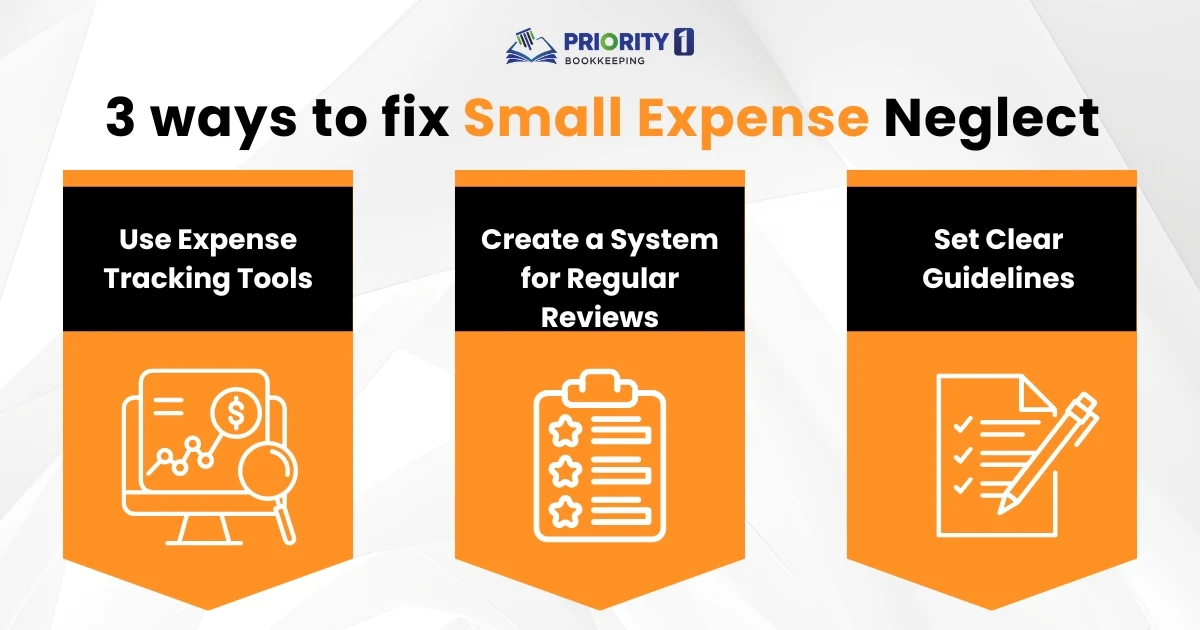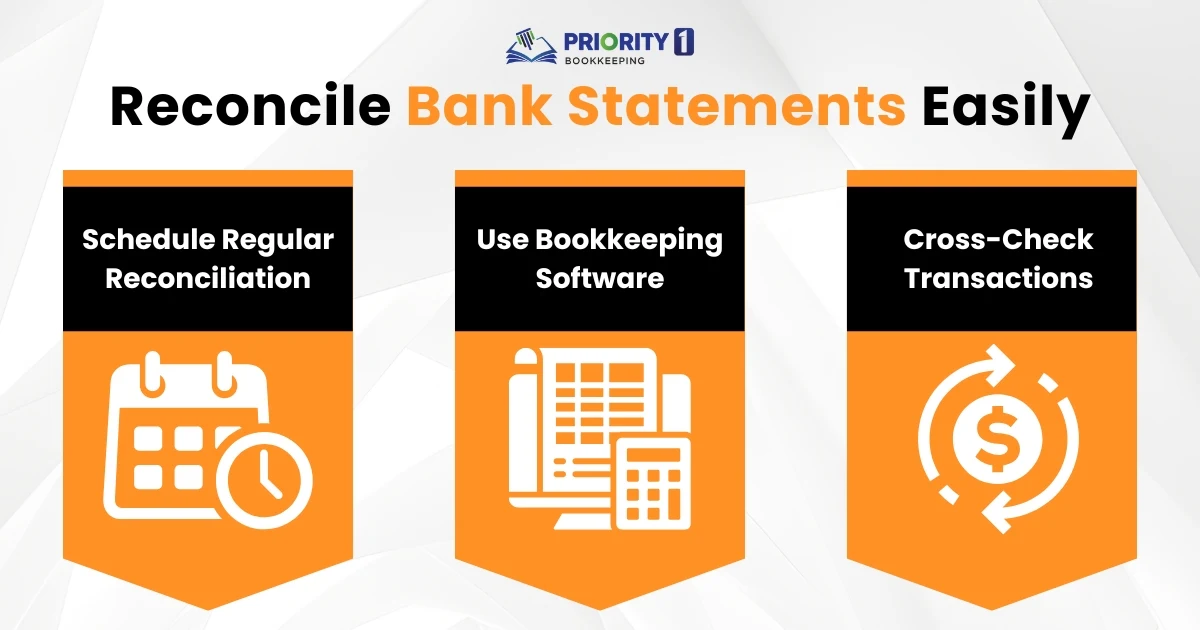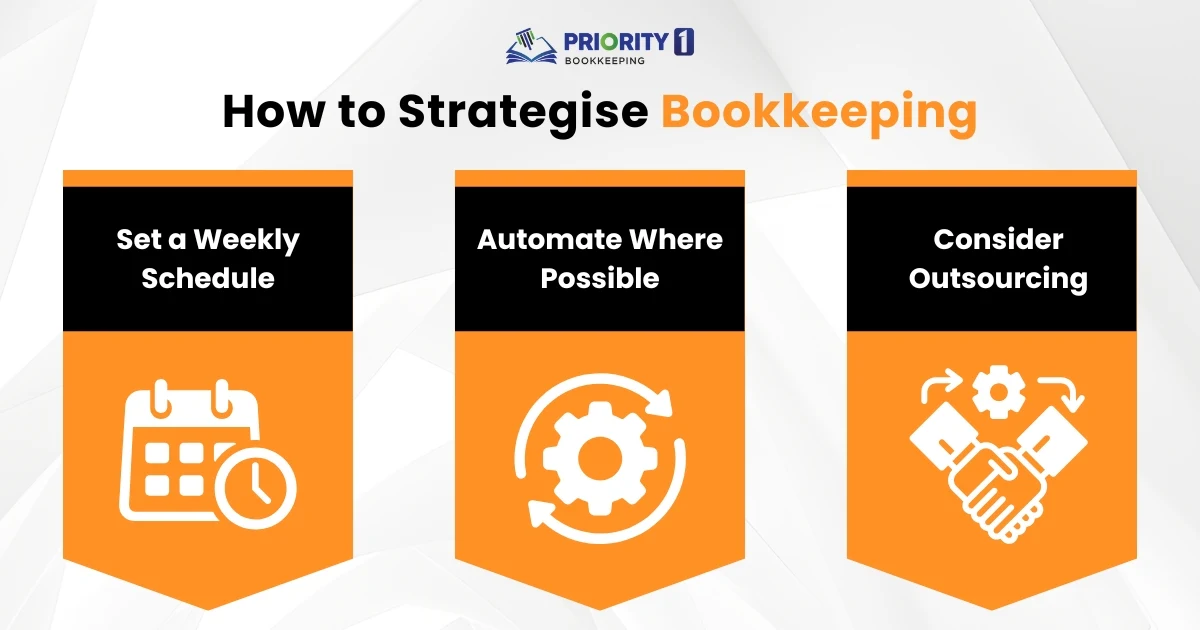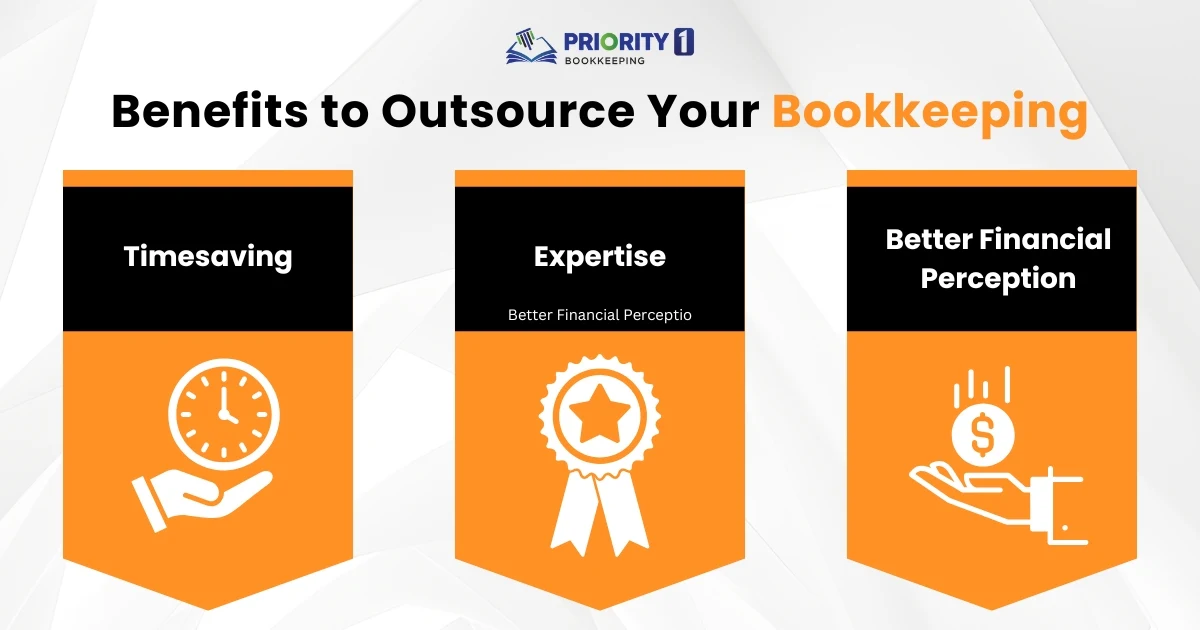
Accurate bookkeeping is the backbone of any business’s smooth operation and long-term success. Whether you have a small startup or manage a growing enterprise, clear financial records will ensure that you can track your cash flow, comply with tax obligations, and make sound business decisions. However, even small bookkeeping mistakes can snowball into serious accounting mistakes that lead to financial inaccuracies and lost revenue.
In this post, we highlight the most common bookkeeping mistakes to help you maintain an error-free record and control the business.

This can be easily overlooked in small purchases such as coffee runs, office supplies, or gifts for clients. But what’s the difference of $5? It’s a lot. Such microtransactions done by someone may add up over time if not tallied properly in books.
Small business houses and start-ups are even more vulnerable to committing this mistake, mainly because they don’t have professional finance teams and manage things largely through pen and paper. These little bookkeeping mistakes start gathering with time and end up with unbalanced financial statements, errors in tax returns, and budgeting.

The key lies in consistency and automation. The steps for correcting this error follow:
Reconciling bank statements is a critical bookkeeping practice that ensures your financial records accurately reflect your bank account. Missing this step can result in unrecorded transactions, double entries, or incorrect balances – all of which can compromise your financial data. These accounting mistakes may seem minor at first, but they can escalate into significant issues, especially when managing cash flow or preparing financial reports.
Among the common bookkeeping mistakes that may present irregular reconciliation is an interpretation of cash. Your book balance can look larger than the funds found in your checking account. A perception this wrong leads to overspending and sometimes to a missed pay check that incurs an overdraft that hurts supplier relationships and the credibility one will want in terms of how credit balances stand.

If you follow a consistent and systematic way, reconciliation of your bank statements becomes easy.
The most common bookkeeping mistakes most small business owners make include the blending of personal and business expenses. Although this might seem convenient to do both personal and business transactions using one bank account or credit card, it can be very problematic in the long run. It is impossible to keep proper financial records, complicates cash flow management, and obfuscates the real financial health of your business.
The financing also blurs the lines that need to be made between business and personal assets, particularly in the case of a lawsuit against your business or a business bankruptcy. It even jeopardises the limited liability status that business structures, such as companies or trusts have, and your assets are exposed to the same peril.
Furthermore, unbalanced accounts may attract audits and penalties from the Australian Taxation Office (ATO). ATO expects a business to keep accurate and adequate records to support both income and expenses effectively. Mixing accounts may result in erroneous tax filing, tax returns late, or no allowed deductions, which calls for penalties and more scrutiny.

This can be avoided by setting the right financial boundaries:
The very bedrock of effective bookkeeping lies in proper transaction classification. Such ensures the accuracy of financial data and thereby facilitates a business owner in giving correct reports, making sensible decisions, and abiding by tax laws. When, on the contrary, a business misclassifies expense or income, then the picture gets distorted about the business’s financial aspect. Some direct results would include false profit and loss statements, inaccurate cash flow projections, and even bad analysis.
For instance, the purchase of new equipment is a capital expense, but if it is treated wrongly as an operating cost, your financial records will now reflect an overstatement in the deductible expenses. This flaw might for a shorter period reduce taxable income but might attract unwanted notice from the Australian Taxation Office, ATO, in case the financial records are audited. Such anomalies lead to levies, denied claims or even back taxes which would be burdensome for a business financially and tarnish its reputation.
Again, income streams misclassify in instances where revenue sales of the assets are captured under the business income. The outcomes are distorted reports and thus, a business makes wrong financial decisions. Inaccurate accounts delay a business’s capability to plan, raise loans, or invite investors.

To not make this one of the most common bookkeeping errors, one should have a well-structured approach:
Probably one of the most common bookkeeping mistakes that is costly is procrastination. As if this were not already bad enough, many, many things are clamouring for attention at all times, and bookkeeping normally is the least urgent activity, yet delaying some of your most important tasks such as expense recording, reconciling bank accounts and submitting invoices can cause a “domino effect” regarding your business’s financial well-being.
Bookkeeping is such that when things go out of hand, it becomes impossible to catch up. Two possible outcomes include the missing deadlines for payment, issues in cash flow, and fines because the tax will not be filed in time. Apart from all this, real-time financial information also acts as an important tool that assists owners to make more sound judgments in terms of funding or in preparing for audits.
This trap easily falls into the smallest companies and those with the least financial power. Delayed bookkeeping increases the chances of making mistakes, which can prove very difficult to trace and rectify before they become a larger accounting error.

It is not easy to maintain bookkeeping without being proactive and strategic.
Outsourced bookkeeping is one of the transformative decisions for small businesses, especially those that recur with bookkeeping mistakes. Financial record management demands time, a keen eye for detail, and a good understanding of accounting principles. For many business owners, such demands tend to distract from the focus—business growth. By outsourcing your bookkeeping, you will regain your time and be able to focus on core operations.

Outsourcing in bookkeeping is best appreciated by small businesses which usually:
The backbone of a healthy business is good bookkeeping. The blog has described some of the most common bookkeeping mistakes that would not let your business grow. It starts with skipping the recording of little expenses and then goes to errors in categories involved in the transaction. These look rather very minor but do multiply with time, sometimes even making inaccurate reports about your financial condition, the overdue deadline for payment, and worse still creating legal or tax troubles.
It is harmless to forget to track small expenses, but this will distort the financial records, and cash flow is sure to be in disarray if one does not regularly reconcile bank statements. Mixing personal with business finances makes tax reporting more complicated and blurs the lines between personal assets and business liabilities.
Besides, the income or expenses that are misclassified affect profit and loss statements, which leads to wrong budgeting and tax errors. Lastly, procrastination about bookkeeping work leads to falling behind with records, hence becoming unable to get back in control and avoid costly errors.
Such bookkeeping mistakes are handled efficiently to ensure the accuracy of the financial account, smooth management of cash flow, and compliance of the account with the ATO requirements. It does not just help prepare taxes properly but gives good insights about guiding a better business move in various dimensions, right from budgeting and forecasting to even borrowing loans or attracting investors.
To avoid accounting mistakes, adopt proactive bookkeeping practices: set regular schedules for financial reviews, leverage bookkeeping software for automation, and consider outsourcing if needed. By staying on top of your bookkeeping, you’ll ensure that your business remains financially healthy, compliant, and positioned for long-term success.
It takes precision, expertise, and time to manage your company’s finances, and small business companies are often at a disadvantage in these aspects. That is where Priority1 Bookkeeping steps in as a trusted outsourcing bookkeeping partner offering complete solutions tailored to suit all outsourcing needs.
The highly experienced professionals forming Priority1 guarantee the accuracy of the financial records and timely reconciliation with the most updated tax laws so you will never incur expensive penalties from misclassifying transactions or falling behind with your bookkeeping.
Priority1 Bookkeeping utilises high-level software that helps you better manage your business. With reports and insights, you’ll make better-informed decisions to make it grow. Spend time on building your business; let them manage the numbers.
Let Priority1 Bookkeeping be your reliable, hassle-free financial management partner in keeping your business on track for success.
Accuracy in financial records is crucial for business growth and stability. The top five mistakes that businesses should avoid in bookkeeping.
With the rectification of such common bookkeeping errors, you can have accuracy in your financial records, tax compliance smoothly, and be in good condition to make the right decisions at the right moment regarding the business. Being proactive about the bookkeeping practice is beneficial to prevent costly errors and makes the business stay on track.
When managing your books becomes very cumbersome, then you should seek to outsource to a professional bookkeeping service. Outsourcing will provide professional help in keeping your books and tax compliance, and you will concentrate on growing the business with confidence.
Stay updated with expert bookkeeping tips and insights! Subscribe now to receive updates directly in your inbox for your business.
* We never spam your email
38B Douglas Street, Milton QLD, 4064 Australia
Monday - Friday 09:30 AM - 05:30 PM
© 2025 All Rights Reserved.